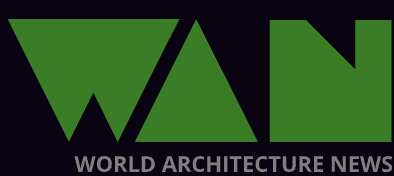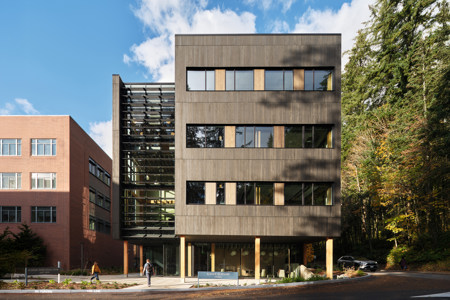

Western Washington University, Kaiser Borsari Hall
Perkins&Will
With growing STEM enrollment and industry demand in Washington State, Western Washington University (WWU) recognized the need for a new interdisciplinary facility to keep pace and expand opportunities in science, technology and engineering education. Kaiser Borsari Hall is a multi-disciplinary 5,000 m2 learning environment that sets the standard for future campus projects, as the first all-mass timber, net-zero energy, and zero-carbon engineering lab building. It is a collaborative hub fostering innovation and connection among industry experts, faculty, and students, promoting diversity and inclusion within the campus community.
The Future is Now The new Kaiser Borsari Hall is the first higher education STEM building to pursue both Zero Carbon and Zero Energy Certifications through the International Living Future Institute. This sets a new benchmark for sustainable construction on campus and prompted a shift in legislative requirements, allowing ILFI certifications as alternative to LEED for state-funded projects. The building functions as a "living laboratory," integrating sustainable strategies through exposed infrastructure, flexible labs, and innovative energy technologies like photovoltaic panels and advanced battery storage.
Regenerating the Site
Built on a former parking lot, the site now thrives with native, climate-adaptive vegetation, seamlessly connecting to the Sehome Hill Arboretum. Inspired by the arboretum, the design employs biophilic design strategies that harmonize the natural and built environments. Natural materials and visual connections to nature support the well-being of the campus community and reinforce WWU’s dedication to sustainability and environmental stewardship.